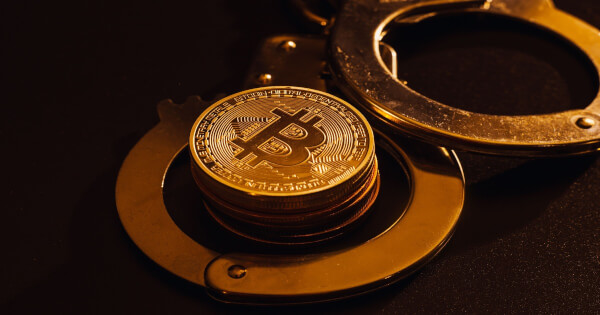ACE Exchange President Michael Wang Arrested
Luisa Crawford Jan 24, 2024 16:20
Michael Wang, President of ACE Exchange, was recently arrested on charges of fraud and money laundering, marking a significant event in the cryptocurrency industry.

Michael Wang, President of ACE Exchange, has been arrested on allegations of fraud and money laundering. The arrest, which occurred earlier this month, has sent shockwaves through the industry, especially considering Wang's notable status as a leader within a major crypto exchange.
The Taiwanese authorities have detained Wang following accusations that he was involved in a scheme promoting worthless cryptocurrencies, essentially engaging in a fraudulent activity known as the "junk coin scam." This development follows the earlier arrest of ACE Exchange founder David Pan, who was also implicated in planning fraud and luring investors to invest in these worthless cryptocurrencies through social media ads.
Law enforcement agencies conducted a thorough search of Wang's residence, uncovering around 49 million New Taiwan dollars in cash and nearly 190 million New Taiwan dollars' worth of cryptocurrencies. In addition, a McLaren 720S supercar, valued at 18 million New Taiwan dollars, was seized from his girlfriend's home. These findings have raised concerns about potential money laundering activities linked to Wang and the exchange.
Wang, who has denied involvement in the case, claimed that the suspicious funds were borrowed from friends. However, his inability to explain the source of the funds led to his arrest and further investigation by the authorities.
This incident raises significant concerns for users of ACE Exchange. The financial regulator has warned that the exchange could be delisted from the list of compliant exchanges, and users are advised to withdraw their tokens and deposits as a precaution. The exchange's cash custody is managed by KGI Bank, ensuring the safety of users' cash reserves, but the custody of the cryptocurrencies is a matter of concern.
The crypto market, while often celebrated for its innovation and growth, has also been marred by instances of fraud and regulatory scrutiny. The arrest of a high-profile figure like Michael Wang not only highlights the risks associated with the industry but also underscores the need for greater oversight and consumer protection.
Image source: Shutterstock.jpg)